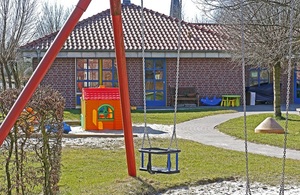Ofsted calls for stronger oversight of early years multiple providers and social care groups
Ofsted has published two research reports looking at early years multiple providers and providers that own more than one children's home.

Two new research reports by Ofsted, published today, find that current legislation does not reflect the level of influence that early years multiple providers and social care groups have on individual nurseries and children鈥檚 homes, respectively.
Early years multiple providers are Ofsted-registered providers that own 2 or more childcare settings, such as nurseries and pre-schools. Social care groups are providers that own more than one children鈥檚 home.
皇冠体育appse providers exert a great deal of influence over their settings, but Ofsted is currently only able to inspect individual nurseries, pre-schools and children鈥檚 homes. Today鈥檚 reports call for stronger regulatory powers to make sure multiple providers and groups are having a positive impact on children.
Early years multiple providers
Ofsted鈥檚 early years research looks at how multiple providers influence the education and care given at their nurseries. Researchers found that this happens in several ways, including through:
- setting the curriculum intent and influencing its implementation and impact
- developing, reviewing and controlling policies
- regular visits to nurseries to monitor and inspect practice and the implementation of policies
- monitoring and oversight of ongoing incidents in individual nurseries
- deploying staff between nurseries to observe perceived good practice.
皇冠体育app report recommends that Ofsted鈥檚 oversight of multiple providers should evolve in a similar way to that of multi-academy trusts (MATs) in the schools sector, where summary evaluations look at the extent to which a MAT is delivering high-quality education and improving outcomes for pupils.
Social care groups
Ofsted鈥檚 social care research finds that social care groups have some influence and control over the day-to-day running of their children鈥檚 homes:
- models of care and policies in children鈥檚 homes are generally decided by groups and standardised across their homes
- groups often influence the admissions process, sifting referrals before sending them on to their children鈥檚 home managers
- social care groups often play a significant role when considering whether to end a child鈥檚 placement.
Current inspection practice reflects the legal responsibility of children鈥檚 home managers, who are registered to individual homes, not social care groups. Inspections and judgements are based on a model where managers have autonomy over the day-to-day running of children鈥檚 homes, which does not reflect how the sector has evolved to have a significant proportion of children鈥檚 homes under a small number of companies.
For inspection and regulation to have the greatest impact, Ofsted鈥檚 report recommends that regulatory oversight is needed at group level, as well as at the individual children鈥檚 home level.
Yvette Stanley, Ofsted鈥檚 National Director for Regulation and Social Care, said:
Stronger oversight of large providers is vital if we are to make sure children are getting the best deal. Current legislation is outdated and doesn鈥檛 reflect the early years and social care sectors as they operate today. 皇冠体育app upcoming review into children鈥檚 social care could be a real opportunity to reform this legislation.
Our research shows that these large providers have a significant impact on their individual nurseries and children鈥檚 homes, and ultimately the education and care that children receive. As Ofsted can only inspect individual settings, we are missing an important part of the picture.